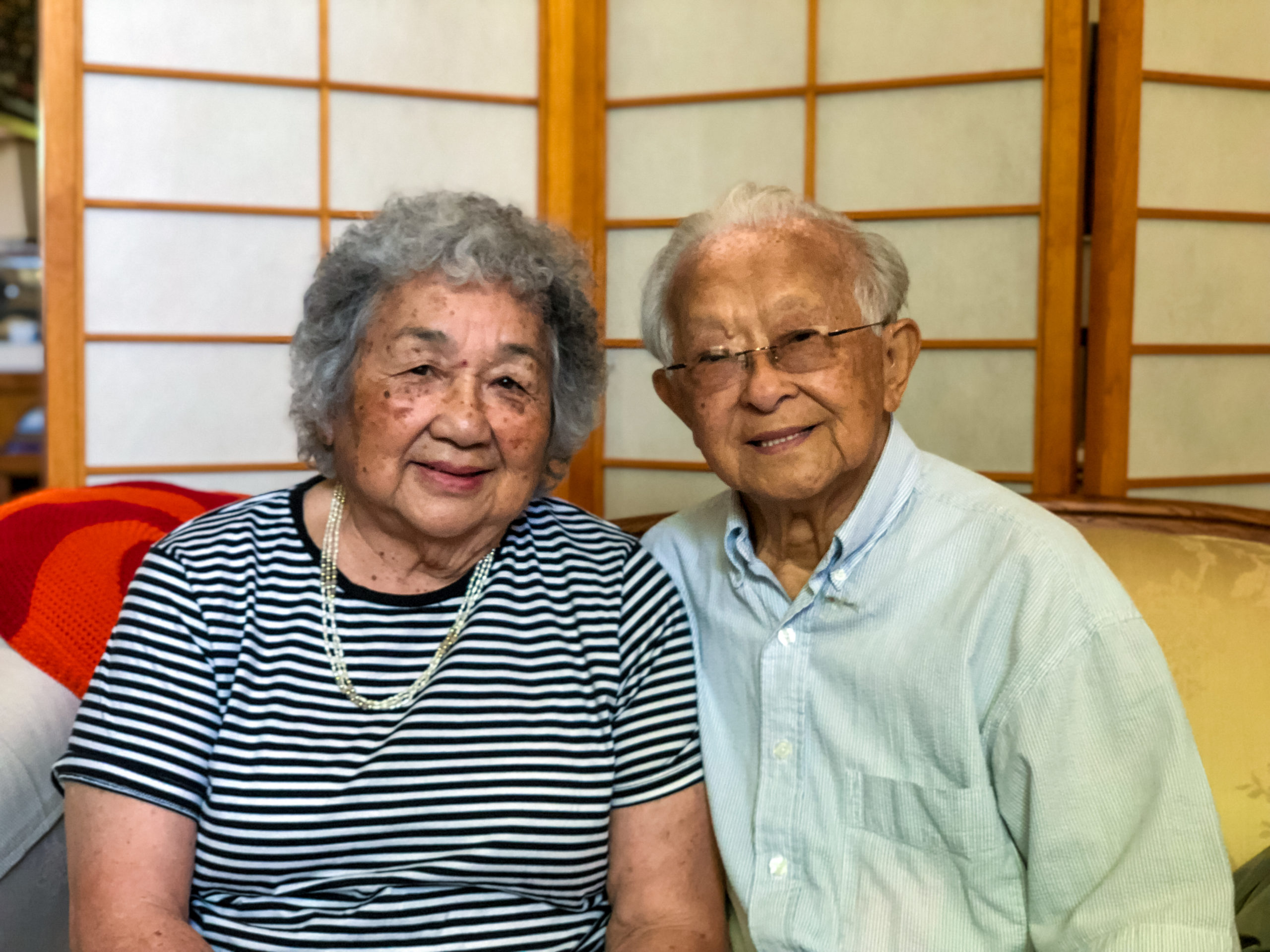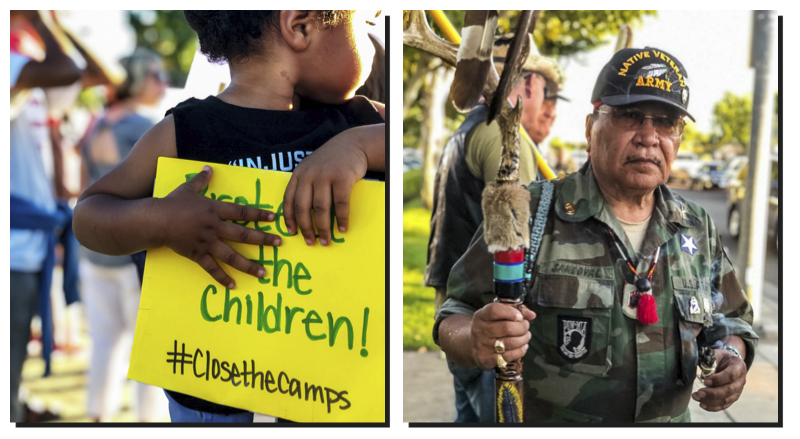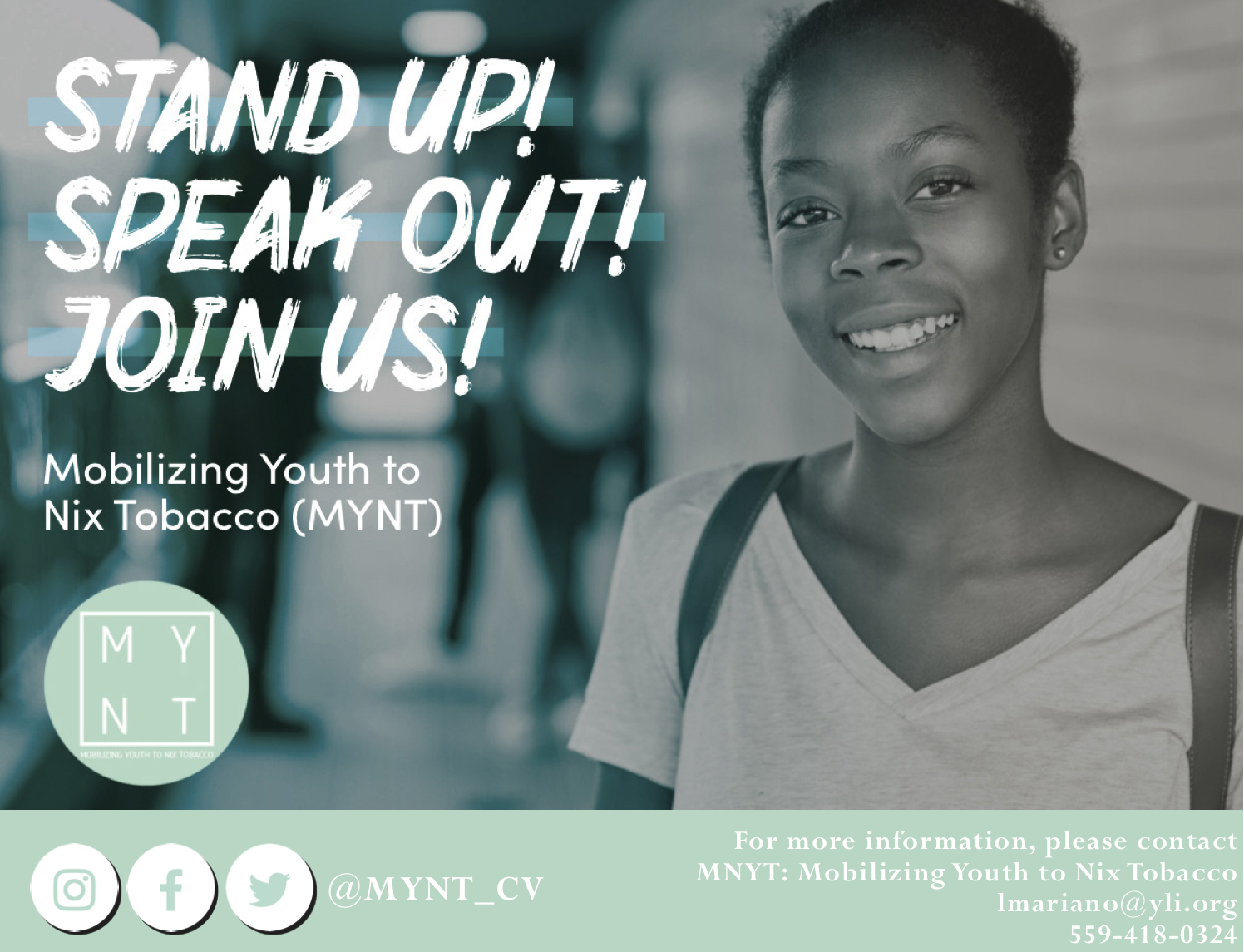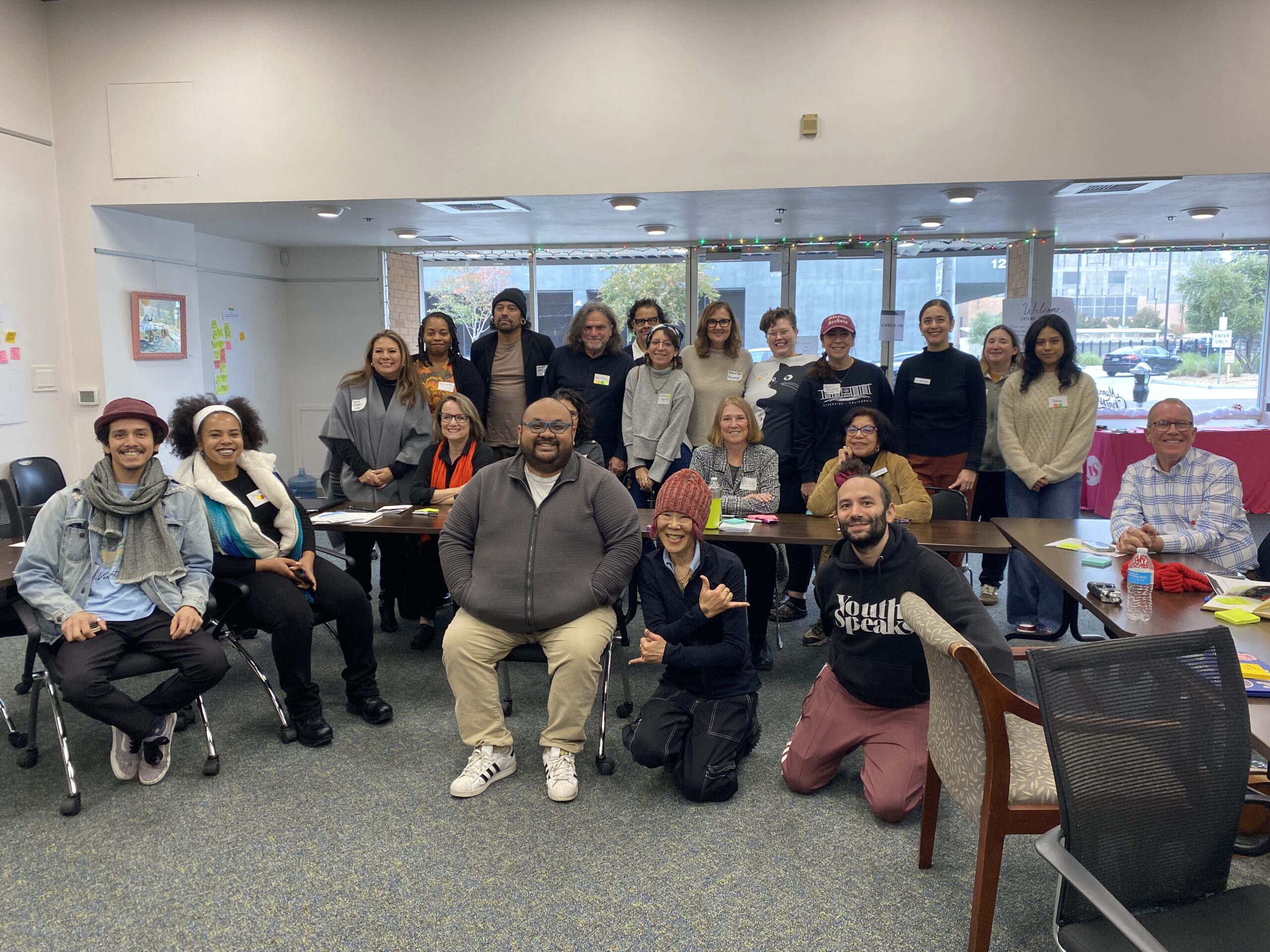
“After Pearl Harbor, there were talks about rounding us up, to which we began calling ourselves Japanese-Americans. Up to that point, we just referred to ourselves as Japanese, but after that we began using that hyphenated term.”
Saburo and Marion Masada are survivors of President Franklin D. Roosevelt’s Executive Order 9066, which ordered Japanese-Americans to be put in camps after the effects of Pearl Harbor. I had the honor of speaking with the two about their experience and how they see similar issues taking place in 2019. When I brought up the topic of Japanese Internment, Mrs. Masada corrected me, stating that they there were concentration camps.
The two then discussed the discrimination they faced even after World War II ended.
Marion: After the war, it was difficult the way that people treated us. We were Americans. They wouldn’t rent to us, sell food to us. They made us feel like it was bad to be Japanese.
Saburo: For the Japanese to walk down the road, you were made to feel self-conscious with an inferiority complex. It’s hard to buck against it. Especially if you grew up learning to be quiet…if someone calls you Jap, just smile.
The use of discrimination to separate minority groups is not a foreign concept in Fresno. Fresno’s history of redlining and separating minority groups are engraved in the foundation of the city. It has been seen in Black, Chinese, Hmong, and Hispanic communities throughout Fresno. This is most evident in the use of redlining throughout our city’s history. Redlining is a systematic way to marginalize minority groups by denying services or making it more difficult to access resources by raising prices. This is often accomplished by ostracizing groups. Major news outlets play a role in this process which Marion and Saburo touched on.

Marion: I feel like all the storytelling in the media reports at the time were all lies. You could even see the Fresno articles back then not reporting the truth.
Saburo: Japanese farmers produced 90 percent of the vegetables in California, but when Japan bombed Pearl Harbor, anti-Japanese groups found the perfect time to exploit the fears and the hysteria of war to get rid of us by spreading lies that we were disloyal to America.
Catacutan: Today we see our own president claiming specific groups are drug dealers,
terrorists and rapists. Do you see similarities today with how people speak about minority groups?
Saburo: I do, and that’s out of ignorance, self-centered greed, and prejudice. Today I’m hearing the same thing I heard in ‘42.
Marion: In the news is that little girl, they took her father. This was in Mississippi. She said, “My father is not a criminal. Please have a heart and bring my father back.” Her plea in the media was potent, very strong. I hope that the message got through to everyone who sees that, because that’s what’s happening. Innocent people are being rounded up.
What Marion is referring to is the Mississippi ICE raids that occurred earlier this year, a prime example that even today we have federal organizations targeting minority groups.
Ever since their formation after the September 11 attacks, ICE has taken pride in “protecting against border vulnerabilities.” This has led to more deportations in the past two presidential terms than in any other time in US history, which means more families being torn apart and Americans being held in detention centers.
In 2017, Donald Trump closed the Office of Detention Policy and Planning, the office that withheld living standards in these detention centers.
Saburo: In the Mississippi case, half were released because they had no right to be rounded up in the first place, but the damage was already done because their children saw them being taken away and went through the trauma of being left behind. Rounding people up and figuring who is actually “guilty” is inhumane, we don’t do that. We believe, until you’re proven guilty, you’re innocent, but that is not the way ICE functions. In our case, we had no trial, just fear. We should’ve learned a lesson from that, but we still do the same thing.
Marion: They called us non-aliens. That means citizens. They didn’t have the guts to call us citizens.
The country saw how broken and traumatizing the roundup process is with the girl from Mississippi, but the long-term mental health damage caused by concentration camps is a topic that is often overlooked when we speak of ICE and camps.
Saburo: Our good friend was given permission to see her father, and when she did, she could hardly recognize him due to the abuse. She said, “I seen my father and his condition. If I ever hated America, it was at that point. I had hated my country.” Another friend’s oldest brother had to take care of everything when their father was taken. The burden of being responsible for his whole family being taken drove him to suicide in the camp.
The Masada’s lived through a time of separation and discrimination and, in a way, they still are to this day. Fresno has had its share of ICE raids, some even taking place in courthouses. In 2019, a hold center exists in our very own downtown with heavy transparency, the same way our own fairgrounds were used as a Japanese concentration camp.
The process of rounding up groups of people, separating families, and putting innocent people in inhumane living conditions still takes place today. The responsibility falls at the hands of our own communities to stand up for one another.
A note from Marion Masada: If anyone experiences discrimination and prejudice to please make it known to organized groups such as the Islamic Cultural Center of Fresno (ICCF) and the Japanese American Citizens League (JACL) – to name a few. If we keep it to ourselves it doesn’t help, but to bring it out in the open it can be dealt with.



